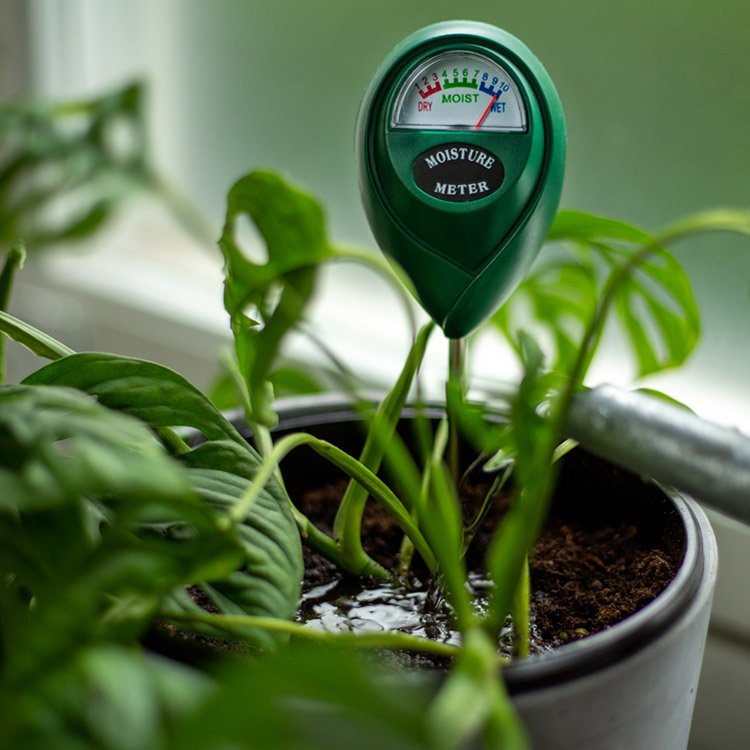Moisture Meter Acquiring Guide: What to Look for in High-Quality Instruments
Moisture Meter Acquiring Guide: What to Look for in High-Quality Instruments
Blog Article
The Ultimate Guide to Moisture Meters: A Comprehensive Summary and Just How They Can Save You Money
In the realm of structure upkeep, construction, and numerous markets, the relevance of precisely measuring dampness levels can not be overemphasized. Dampness meters act as important devices in discovering and checking moisture material in materials, helping in stopping pricey problems and ensuring the quality of items. Understanding the nuances of various sorts of dampness meters, their applications, and the potential cost-saving benefits they supply can be a game-changer for experts and organizations alike. Uncovering how these devices can not just simplify processes however likewise add to economic savings is a journey worth beginning on.
Sorts Of Moisture Meters
One common kind is the pin-type wetness meter, which determines the electrical resistance in between 2 pins placed into a material. Pinless dampness meters, on the other hand, use electro-magnetic sensor plates to scan a bigger location without triggering damages to the product's surface area.
Infrared wetness meters determine the thermal properties of a material to identify its moisture web content non-invasively, making them valuable for applications where pin or pinless meters might not be suitable. Recognizing the various types of moisture meters readily available can aid sectors select the most proper tool for their specific wetness measurement demands.

Advantages of Utilizing Moisture Meters

Furthermore, using dampness meters can lead to enhanced energy performance. In agricultural settings, wetness meters play a critical role in optimizing crop returns by allowing farmers to keep an eye on dirt wetness degrees and make informed watering decisions.
Exactly How to Choose the Right Moisture Meter
Selecting the proper wetness meter includes taking into consideration key factors such as material compatibility, measurement array, and calibration precision. When picking a dampness meter, it's vital to guarantee that the meter appropriates for the specific material you will be testing. Different products have differing electrical residential properties that can influence wetness readings, so selecting a meter developed for your material is important for exact outcomes. In addition, think about the dimension variety of the dampness meter. Ensure that the meter can identify moisture levels within the array required for your applications. Calibration accuracy is one more vital element to remember (Moisture Meter). Select a moisture meter with trustworthy calibration to guarantee accurate and regular readings. Some meters might require routine calibration modifications, so recognizing the calibration procedure is essential. By thoroughly examining these factors, you can choose a wetness meter that satisfies your demands and offers exact dampness read more dimensions for your jobs.
Correct Strategies for Moisture Meter Use
To ensure precise moisture readings and make best use of the efficiency of a moisture meter, utilizing correct techniques is crucial. When making use of a pin-type moisture meter, insert the pins or probes into the material being evaluated up until they make full get in touch with. By adhering to these appropriate techniques, customers can depend on their wetness meter to offer reliable moisture degrees, aiding in preventing costly damages or making certain quality in different applications.

Price Financial Savings Through Moisture Meter Applications
How can the strategic usage of dampness meters lead to considerable cost financial savings throughout different sectors? Moisture meters play an important role in cost savings by stopping possible damages and guaranteeing high quality control in different sectors. In the farming market, moisture meters help in establishing the optimal time for collecting plants, preventing excess or over-drying wetness that can Go Here affect the end product's high quality. This accurate surveillance assists farmers prevent unnecessary losses and maximize their return.

In addition, in the food processing market, dampness meters are vital for checking product top quality and guaranteeing conformity with safety laws. By properly measuring wetness web content in food items, makers can avoid wasting, keep quality, and lower waste, causing significant price savings. In general, the critical application of dampness meters is a beneficial investment that can bring about considerable expense decreases and boosted performance throughout numerous industries.
Conclusion
Finally, dampness meters are useful devices for discovering and determining moisture degrees in various materials. By making use of the appropriate dampness meter and following correct strategies, individuals can efficiently stop costly problems brought on by excess moisture. Purchasing a high quality dampness meter can cause significant cost savings in the lengthy run by determining possible concerns early and enabling punctual remediation. Eventually, wetness meters are important tools for preserving the stability and long life of frameworks and materials.
Wetness meters serve as important tools in spotting and keeping an image source eye on moisture material in products, helping in protecting against costly problems and making sure the high quality of items. Infrared wetness meters determine the thermal residential properties of a product to identify its dampness content non-invasively, making them helpful for applications where pin or pinless meters might not be suitable.Dampness meters provide vital advantages in precisely examining and keeping track of moisture levels in varied products and environments. In farming setups, dampness meters play a crucial function in maximizing crop yields by enabling farmers to keep an eye on dirt wetness degrees and make notified watering decisions.In conclusion, dampness meters are valuable devices for spotting and gauging moisture degrees in different products.
Report this page